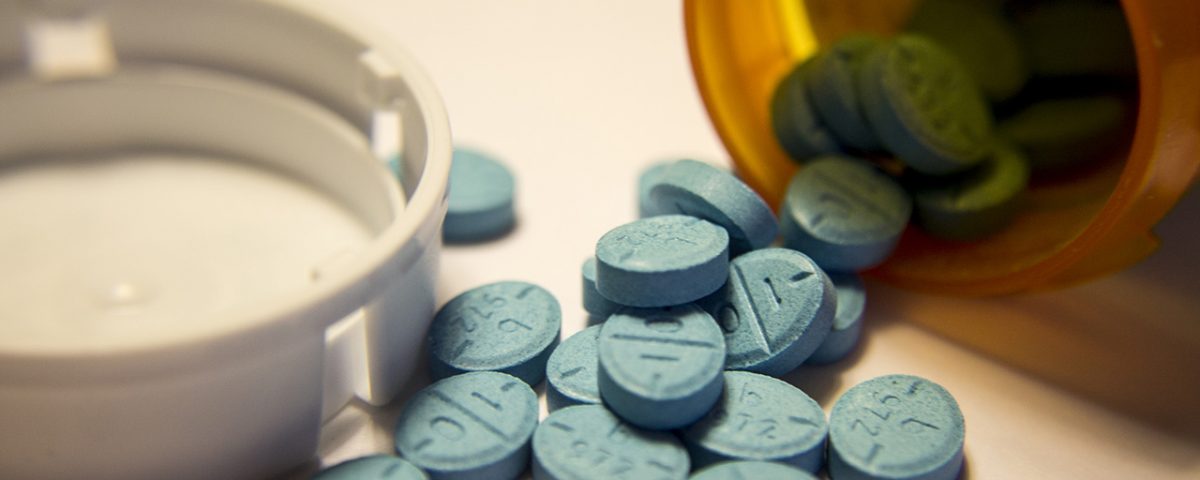Focalin and Adderall are two types of prescription drugs that are used to treat attention-deficit hyperactivity disorder (ADHD).
As stimulants, they increase alertness and improve concentration and focus in people with this disorder. Many people who have ADHD or loved ones with this condition may compare the effectiveness and strength of Focalin vs. Adderall. If you’re looking into asking your doctor about these medications, then knowing their differences is important. At Banyan Treatment Centers Heartland, we also know that sharing more information about these medications can reduce the likelihood of their abuse.
What Is Adderall?
Adderall is a prescription stimulant used to treat ADHD and narcolepsy. Its ingredients are dextroamphetamine saccharate, amphetamine aspartate, dextroamphetamine sulfate, and amphetamine sulfate. Adderall can produce certain side effects, including dry mouth, stomach pain, weight loss, anxiety, and loss of strength. People who take this medication regularly may initially experience these side effects when they first start using the medication or when their dose is increased. These side effects usually subside as the individual’s body adapts. They may also experience Adderall withdrawal symptoms if they were to abruptly cease their use of the drug.
What Is Focalin?
Dexmethylphenidate, or Focalin, is a man-made stimulant that’s derived from methylphenidate. Methylphenidate is known by the brand names Ritalin, Concerta, and Metadate. Dexmethylphenidate is the most active ingredient in methylphenidate, which is why Focalin is twice as strong as Ritalin and Concerta. Focalin side effects include difficulty sleeping, nausea, vomiting, stomach pain, headache, loss of appetite, weight loss, or dizziness. Like Adderall, Focalin’s side effects should become regulated once the person is accustomed to the medication. If not, they should call their doctor immediately.
Adderall vs. Focalin: How Are They Different?
They sound pretty similar, but are Focalin and Adderall the same? Although both Focalin and Adderall work similarly by blocking the reuptake of norepinephrine and dopamine, they are not the same. Another major difference between the two is that there’s no generic form of Vyvanse available, making it more expensive than Adderall. However, this also means that Vyvanse is less likely to be abused, although there are no studies that provide head-to-head trials.
Focalin vs. Adderall Side Effects
Due to their stimulant nature, Focalin (dexmethylphenidate) and Adderall (amphetamine and dextroamphetamine) have many similar adverse effects, such as decreased appetite, sleeplessness, and nervousness. Their potential adverse effects do differ in several noticeable ways, though. For instance, although Adderall may modestly increase the risk of dry mouth, Focalin may be linked to a higher incidence of headaches. Additionally, while Focalin may result in mood swings or irritation, Adderall may be more likely to produce agitation and restlessness in some people. Rarely, both drugs may cause serious side effects such as elevated heart rate, altered blood pressure, and allergic responses. However, each individual may experience these effects differently.
Adderall and Focalin Mechanism of Action
The difference between Adderall and Focalin is that Focalin only contains one kind of amphetamine salt, dexmethylphenidate, while Adderall contains four kinds of amphetamine salts. Amphetamine and dextroamphetamine, which together make up Adderall's active components, work together to produce its effects. Dopamine and norepinephrine are the main neurotransmitters affected by these substances, which have stimulating effects on the central nervous system. The levels of these neurotransmitters are increased in the synaptic clefts between nerve cells by amphetamine and dextroamphetamine, which increase their release while decreasing their absorption. This increased brain activity is thought to benefit ADHD sufferers' focus, attention, and impulse control.
Focalin, on the other hand, contains dexmethylphenidate as its active ingredient. The active enantiomer of the ADHD medicine methylphenidate is this substance. Similar to amphetamine and dextroamphetamine in Adderall, dexmethylphenidate predominantly inhibits dopamine and norepinephrine reuptake. By doing this, it raises the concentrations of these important neurotransmitters in the synaptic clefts, which enhances focus and attention. Although the main goal of both drugs is to raise neurotransmitter levels, the effects and personal responses of the drugs can vary due to the differing molecular configurations of their active ingredients.
Adderall vs. Focalin Dosage
The right amount of Adderall and Focalin to take depends on the person's age, weight, and how severe their ADHD symptoms are. There are several dosing alternatives for Adderall, which are offered in immediate-release (IR) and extended-release (XR) formulations. Adults are typically administered an initial dose of 5–10 mg of Adderall IR, taken one–three times daily. The initial doses of Focalin for adults are typically 2.5 mg twice daily. However, this can be changed depending on the patient's reaction. Focalin is furthermore offered in an extended-release formulation that can be taken once daily.
Although they’re different, both Adderall and Focalin affect the brain by activating the release and blocking the reuptake of norepinephrine and dopamine. Norepinephrine plays a role in managing functions like breathing, heart rate, and blood pressure, while dopamine plays a role in mood and reinforcing pleasurable behaviors. Prescription stimulant abuse has become more common among young adults, particularly college students. Individuals who do not have ADHD often abuse the stimulant drugs Adderall, Focalin, or Ritalin to improve their performance at school or work. However, this can lead to some serious consequences.
Long-term stimulant abuse can lead to addiction, among a variety of other physical and psychological repercussions. Without the help of our Heartland detox for prescription drugs, individuals who are addicted to their medications may turn to illicit stimulants like cocaine or meth for a more intense high. These drugs are even more addictive and physically impacting. Without the assistance of a medical detox center, these individuals also increase their chances of relapsing after quitting and overdosing.









